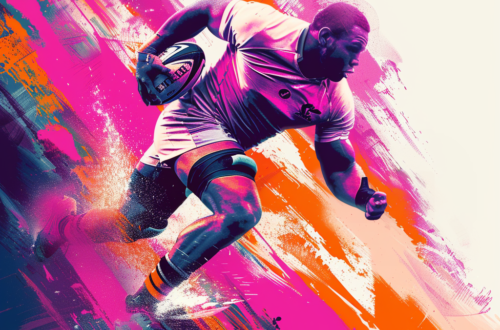
Wagering Through Time: Unveiling the Evolution of Sports Betting Trends
Welcome to the intriguing world of sports betting, a realm where history, data, and human behavior intertwine to create a fascinating tapestry of trends and patterns. This journey into the past is not just a walk down memory lane; it’s a treasure trove of insights for those looking to understand the intricate dance between chance, strategy, and prediction. From the nascent days of informal wagers to the sophisticated online betting platforms of today, the evolution of sports betting mirrors the evolution of society itself.
In this comprehensive exploration, we’ll delve into how historical trends have shaped the betting landscape, influenced betting behavior, and what these patterns can teach us about future betting strategies. Whether you’re a seasoned bettor or a curious observer, prepare to embark on a fascinating exploration of sports betting’s rich history and its impact on the present and future of wagering.
Data Science Revolution in Sports Betting
The entry of data scientists into the world of sports betting marked a significant paradigm shift. This revolution began in earnest in the late 20th and early 21st centuries, as the digital age ushered in a new era of information accessibility and analytical tools. The emergence of sophisticated data analysis fundamentally changed betting strategies, moving away from intuition-based wagers to methodical, data-driven decisions.
Pioneers in the field utilized statistical models, probability theories, and complex algorithms, harnessing the power of vast data sets to predict outcomes with greater accuracy. This evolution was not just about numbers; it was a blend of sports knowledge, mathematical acumen, and technological prowess.
One landmark moment was the application of Moneyball principles, popularized by baseball but quickly spreading to other sports. Betting syndicates began employing quants, professionals with skills in quantitative analysis, who could dissect team performances, player metrics, and historical data to gain a betting edge.
The impact of this data-centric approach was profound. It led to the development of predictive models that could analyze thousands of variables, from player fitness to weather conditions, transforming sports betting from a game of chance to an arena of calculated risk.
As we progressed into the 21st century, the rise of big data and machine learning further revolutionized the betting landscape. The introduction of AI-driven models opened up new frontiers, making real-time data processing and prediction possible, thereby changing the odds in favor of those who could master these technologies.
Analyzing Major Historical Trends
Analyzing the major historical trends in sports betting, we see a shift from gut-feel betting to an era dominated by data analytics. The use of statistical tools, starting with basic spreadsheets to sophisticated software like R and Python, marked a significant transition. Bettors began employing various models, including regression analysis, to predict game outcomes.
Key figures emerged during this era, notably Haralabos “Bob” Voulgaris, who became famous for his NBA betting expertise. His success was largely attributed to his use of advanced statistical models, which he developed to analyze game trends and player fatigue. Voulgaris’ approach was a clear departure from traditional betting, paving the way for a new breed of professional sports bettors who relied heavily on data.
The introduction of machine learning and AI further revolutionized the field. Predictive models grew more sophisticated, capable of processing vast datasets to identify patterns previously unnoticed. This led to more accurate predictions and strategies, and the rise of algorithmic betting, where decisions were made based on computer-generated recommendations rather than personal judgment.
Expanding on the role of data analysis in sports betting, we see how it evolved from rudimentary charting methods to complex predictive models. The use of statistical software like SAS and SPSS became prevalent among professional bettors, allowing for more nuanced analyses, including logistic regression and time series analysis for trend forecasting.
Professionals like Tony Bloom, renowned for his sports betting hedge fund Starlizard, exemplify this shift. Bloom’s success is attributed to his quantitative, data-centric approach, employing a team of data scientists and statisticians to analyze matches. This methodological approach represents a significant departure from traditional betting, emphasizing the importance of analytical rigor.
With the advent of big data, the scope for analysis expanded exponentially. Tools like SQL for database management and advanced machine learning algorithms implemented in Python or R enabled bettors to analyze vast datasets more efficiently, uncovering insights that would have been impossible to detect manually.
In the world of professional sports betting, statistical methods and tools have played a crucial role. Prominent figures like Tony Bloom have utilized regression analysis, a statistical method that helps in understanding the relationship between variables, to predict sports outcomes. Another key tool has been machine learning algorithms, which can process vast datasets to identify patterns and make predictions based on historical data.
The Future Of Betting – Predictive Analysis
The future of betting with predictive analysis represents a fascinating technical frontier. This realm is increasingly dominated by machine learning and AI, where complex algorithms process vast datasets, revealing hidden patterns and insights. The future lies in real-time predictive analytics, where bettors could make decisions based on live data streams.
Advancements in technology, like neural networks and deep learning, are poised to further refine predictive accuracy. These tools can analyze more variables than ever before, considering not just player stats and team records, but also real-time performance dynamics.
Moreover, the integration of IoT and wearables in sports could provide even more granular data, like player fatigue levels, potentially transforming betting strategies. The technical deep dive here would explore these cutting-edge technologies and their potential to reshape the landscape of sports betting.
In the future of betting with predictive analysis, an intriguing angle involves leveraging social media sentiment analysis. This approach considers the public’s perception and emotions towards teams and players, which can significantly impact game outcomes. By analyzing social media trends, posts, and reactions, bettors could gain insights into team morale, fan support, and even psychological factors affecting player performance.
*gamble responsibly help is available
Remember to like us on Facebook – Twitter – Spotify – TikTok – Instagram – YouTube – Discord




